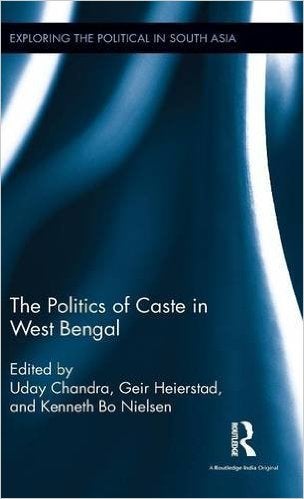Georgetown Professor Tackles the Taboo Topic of Caste in India

There is no shortage of books on the rapid social, political, and economic developments in India, but a new volume co-edited by Georgetown University in Qatar (GU-Q) professor of government, Dr. Uday Chandra, brings the focus back on the neglected politics of hierarchical caste systems. Drawing on cutting-edge multidisciplinary scholarship in the fields of history, anthropology, sociology, political science and cultural studies, “The Politics of Caste in West Bengal” offers a comprehensive and in-depth analysis of the making and maintenance of a modern caste society in colonial and postcolonial West Bengal.
The new book demonstrates how caste relations have permeated the politics of the region until today, dispelling the myth that caste does not matter in Bengali society and politics. Authored by specialists in the field, the essays also draw Important comparisons and contrasts with other regions in South Asia.
“We focus on the eastern Indian state of West Bengal as our case study to show how even a state considered to have long outlived the politics of caste continues to be defined by it,” said Dr. Chandra, who is also a Postdoctoral Research Fellow at the Max Planck Institute for the Study of Religious and Ethnic Diversity in Göttingen, Germany.
“Caste is not racial, but like race, it’s a social category that divides people into higher or lower status groups. These hierarchical notions reproduce themselves across generations over time.” He co-edited the book along with Dr. Geir Heierstad, Research Director at the Department of International Studies, Norwegian Institute for Urban and Regional Research in Oslo, Norway, and Dr. Kenneth Bo Nielsen, Postdoctoral Research Fellow at the Department of Sociology, University of Bergen, Norway.
“It may surprise readers unfamiliar with the subject not only how durable caste hierarchies are, but how they mutate in modern times to adapt to changing social circumstances,” he explained, noting that while the caste system continues to serve as a major social force in contemporary India, it remains under-studied in many ways.
The opening paragraph of the book explains why the politics of caste have been largely sidestepped by modern scholars. “Firstly, the political culture of postcolonial West Bengal has tended to make all talk of ‘caste’ a taboo. Secondly, West Bengal, unlike many other regions in India, has not experienced major caste-based social movements since 1947. Thirdly, the ruling elites of this eastern Indian region, the bhadralok, though internally differentiated along many axes, have exercised a virtually uncontested social dominance that is rather unique even in a country where the reproduction of power relations is anything but uncommon.”
This volume is part of the Exploring the Political in South Asia series published by Routledge India, and will interest scholars and researchers in sociology, social anthropology, politics, modern Indian history and cultural studies. An official book launch in Oslo, Norway, is planned for the fall